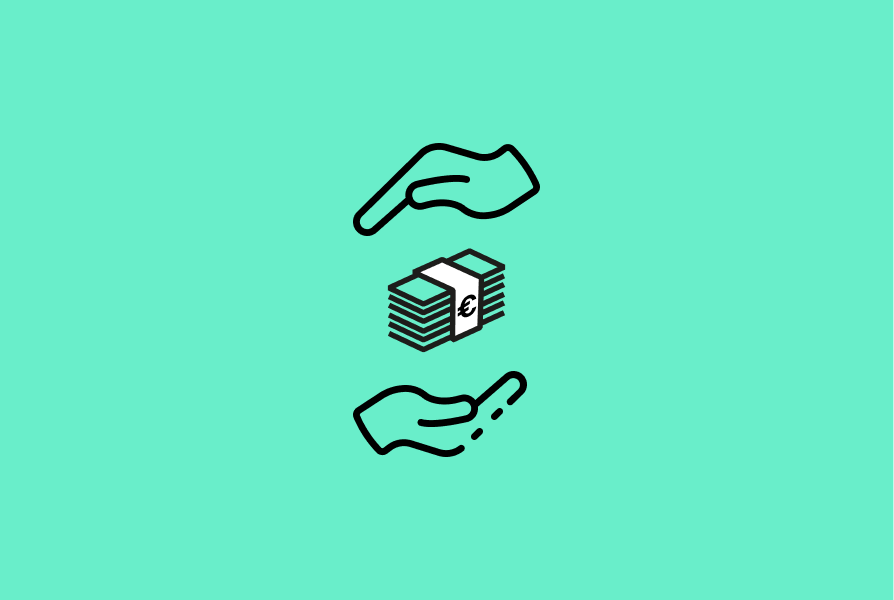It's not just inflation to blame for falling purchasing power but unhealthy financial habits. And when you're constantly "on the cliff" (or even in the red), it's hard to make medium or long-term plans! Is there a better way to use my money? Are there any tricks to put more money into savings at the end of the month? The answer is yes, but you have to work at it!
Having holes in your pockets is far from ideal, especially if you mean it figuratively. Does this saying, which usually refers to a spendthrift, prevent me from saving or making my money work for me? One thing is for sure, it takes discipline to manage money properly. And it's not easy! A study by Panorabanques for Le Parisien revealed that half of all French people are overdrawn at least once a year. For 20% of them, the figure rises to once a month!
It's not easy to keep a tight reign on your wallet all the time! However, there is no such thing as a small budget. To build up savings and realise your projects (travel, property) or to face life's uncertainties, "all" you need is the right habits to take control of your money. Getting rich is also a question of will! And the good news is that a big salary isn't everything. Here are some tips to save money, regardless of your income.
APPLY THE "50-30-20" RULE
Not everyone is familiar with it, but it is the wise saver's golden rule. This rule, which everyone should learn as soon as they reach high school (or whenever you start getting pocket money) consists in dividing your expenses into three categories, and allocating each of them a percentage of your hard earned cash:
- 50% goes to essential and indispensable living expenses (water and electricity bills, food, rent, etc.) that you have to pay each month
- 30% is for the small variable expenses that make life enjoyable. A meal out, shopping, the movies, or that Netflix subscription that you look forward to after a hard day's work. In short, this 30% finances your decompression chamber!
- The remaining 20% goes into your savings: Livret A, securities account or life insurance (handily Birdee can help out on that one), etc. The goal is to put money aside and make it work so that it grows.
Our "ninja" tip: set up automatic transfers for the beginning of each month! That way you're sure to stick to the 20% rule ;)
TRACK YOUR INVESTMENTS AND BUDGET
Stop burying your head in the sand! Use management applications, such as Bankin', Linxo or Budgea, to monitor your budget in real time. Do the same with your accounts, especially if you have a portfolio and want check its holdings and performance. You can also get regular reports. This is what Birdee offers, sending out comprehensive reports on a quarterly basis. Find out more about it here.
ChoOSE THE RIGHT SAVINGS VEHICLE
At Birdee we say it all the time, but the right investment allocation is a sine qua non (it sounds even more serious in Latin!) to build up savings worthy of the name. Depending on your investor profile and your age, different allocations are possible: regulated savings accounts, stock market, unit-linked life insurance policies, etc.
Even if your risk aversion is high, it is in your interest to invest small amounts of money in funds that will allow you to make attractive gains. The goal is to generate small but attractive returns, thanks to high yield investments.
If you want to know your financial personality, we recommend a quick test.
BE MORE ANT THAN CICADA
Want to invest in a beautiful apartment some day? Then start saving today! Your annual bonus, an unexpected windfall, a lotto win (and why not...?) doesn't need to be spent straight away. It's exhilarating and tempting to see your bank account swell overnight, but remember that money could be used for "bigger" things later on. Financial stability is a constant balancing act between "what you want to do" and "what you should do". A struggle between desires and reason!
Pay cash, ALWAYS ALWAYS ALWAYS
We touched on this briefly in our FIRE article, but really good advice is worth repeating. Any financial expert will tell you: only buy something if you can afford it. In other words, don't get into debt! Consumer loans in particular should be avoided. They are relatively easy to get, but their high rates will backfire and send the bill sky-rocketing. In the end, you'll pour money down the drain and with it the funds you need for long-term projects.
 English
English








